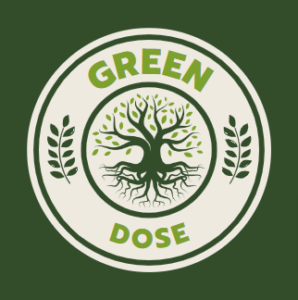In recent years, cloning has transformed from a niche scientific experiment into a growing commercial enterprise. The phrase clones for sale may sound like science fiction, but in several industries—especially agriculture, pet care, and biomedical research—it has become a reality. As cloning technology advances, more people and businesses are turning to clones as a way to reproduce prized genetics, preserve heritage, or push the boundaries of medicine. This booming market raises important questions about technology, value, and ethics.
The Rise of Cloning Services
Cloning involves creating a genetic duplicate of an organism, ensuring that the new individual carries the exact DNA sequence of the original. While cloning plants through cuttings or grafting has been common for centuries, animal cloning technology became more mainstream following the cloning of Dolly the sheep in 1996.
Today, companies offer cloning services for a variety of animals. Pet cloning is one of the fastest-growing sectors. Many owners who have formed deep emotional bonds with their pets choose to clone them after their pets pass away. Cloned animals can look and behave similarly, but it’s important to understand they don’t replicate memories or personality perfectly, as those are shaped by experience rather than genetics alone.
Similarly, farmers and breeders use cloning to reproduce high-performing livestock with desirable traits like enhanced milk production, disease resistance, or superior meat quality. This can reduce uncertainty and speed up the process of improving herds compared to traditional selective breeding.
What You Can Buy: From Pets to Livestock
The market for clones covers a range of offerings:
Pet Clones: Dogs and cats are the most common, with some companies charging upwards of $50,000 per cloned animal. Horses, especially prized racehorses, are also popular for cloning.
Livestock Clones: Cattle, pigs, sheep, and goats are cloned to replicate superior genetics. This practice is especially prevalent in industries where genetics play a critical role in profitability and sustainability.
Laboratory Animals: Cloning is often used in biomedical research to create genetically identical animals for experiments, reducing variability in scientific results.
Plant Clones: Though not typically sold as “clones,” the propagation of plants via cloning techniques is widespread in agriculture and horticulture, including fruit trees and flowers.
The Science Behind the Sale
Cloning animals usually involves a process called somatic cell nuclear transfer (SCNT). This technique extracts the nucleus, containing DNA, from a donor adult cell and inserts it into an egg cell whose own nucleus has been removed. The egg then develops into an embryo, which is implanted in a surrogate mother.
Though the process sounds straightforward, it is technically challenging. Many embryos fail to develop properly, and cloning success rates remain relatively low compared to natural reproduction. Additionally, clones sometimes experience health problems or shorter lifespans due to incomplete reprogramming of DNA or other epigenetic factors.
Ethical and Legal Considerations
The sale of clones raises important ethical debates. Many people question whether cloning commodifies life in a way that is disrespectful or harmful. Animal welfare advocates highlight the risks to surrogate mothers and the clones themselves, as many attempts fail or result in abnormalities.
Human cloning remains illegal in most countries, and the sale of human clones is widely condemned. However, the line between therapeutic cloning (which creates cells for medical treatments) and reproductive cloning (creating entire organisms) remains blurry in some jurisdictions.
Moreover, the question of ownership and identity emerges when clones enter the commercial sphere. Does cloning threaten genetic diversity? Does it encourage a mindset where living beings are reduced to products?
Market Trends and Future Outlook
Despite these challenges, the cloning market continues to grow, fueled by advances in technology and increased public interest. Pet cloning businesses report steady demand from affluent clients, and livestock cloning is becoming more integrated into large-scale farming operations.
Researchers are exploring improvements to cloning methods to increase efficiency and health outcomes. At the same time, new technologies like gene editing (CRISPR) are beginning to complement cloning, enabling not only copies but also genetic enhancements.
There is also potential for cloning to contribute to conservation efforts. Cloning endangered species could help rebuild populations or preserve genetic material for future generations.
What Does the Future Hold?
The availability of clones for sale highlights the rapid intersection of science, commerce, and culture. It is likely we will see cloning services expand and diversify, potentially including personalized medicine, organ cloning for transplants, and even more widespread animal cloning.
However, the expansion must be accompanied by strong ethical guidelines and regulations to ensure the technology is used responsibly. Public engagement is vital to understand societal views and values surrounding cloning.
In the end, clones for sale reflect humanity’s ongoing quest to harness biology and genetics. Whether this quest leads to profound benefits or serious dilemmas depends on how carefully society navigates the complex scientific and moral landscape ahead.
